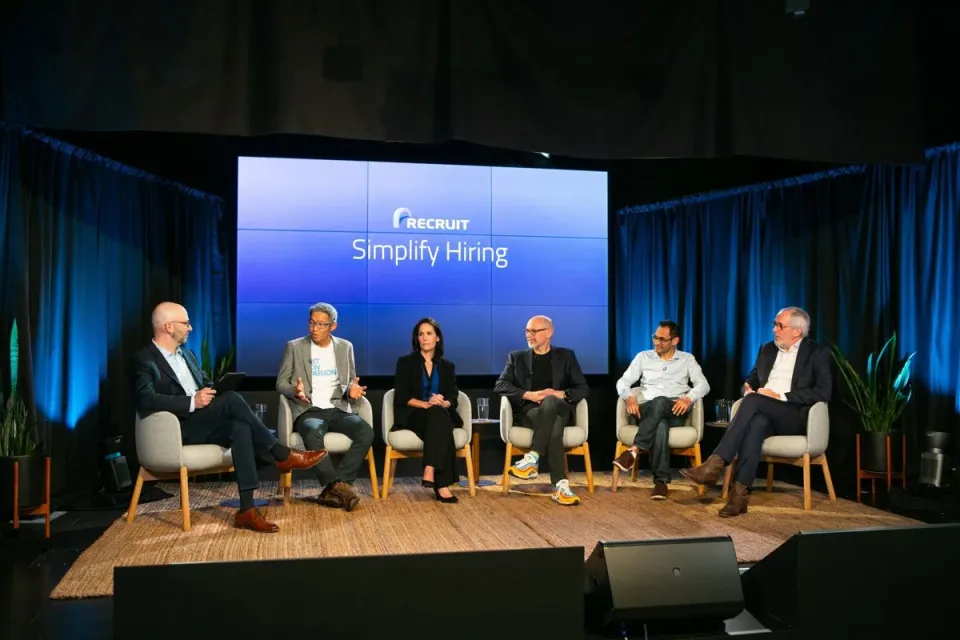Where is Indeed Heading – and How Will it Impact Health & Social Care Recruitment?

Insights from the Health & Social Care Recruitment Roundtable #1
Earlier this week, I hosted a roundtable with a group of professionals working across health and social care recruitment. The focus was:
Where is Indeed heading – and what does it mean for the rest of us?
Context
“We help people get jobs.” That’s Indeed’s current tagline — but what’s really behind it?
In our first Health & Social Care Recruitment Roundtable, I was joined by over 30 professionals from across the UK and Ireland — including NHS trusts, care providers, agencies, and consultancies — to explore a big question:
👉 Where is Indeed heading — and what does that mean for the rest of us?
Indeed is no longer just a job board. In their March 2024 investor meeting, they spoke candidly about becoming a “two-sided hiring marketplace” with a mission to “simplify hiring” — or, put more plainly, to own more of the hiring funnel and “unlock more of the $300B TAM” (as Chris Hyam the CEO at the time put it).
In short, they want (need) to monetize more of the recruitment market and we can see they are already taking steps towards that goal.
This blog shares the key themes, challenges, and takeaways we explored — and what they mean for recruiters, employers, and job boards alike.
1. The End of Free Job Ads?
Indeed has long been the biggest name in job search – but it’s shifting. Their new “Healthy Budget” policy means that every job must now carry a minimum spend – £15 per role in the UK, $25 in the US. No more pooling budgets across jobs. No more strategic shuffling of spend.
Some on the roundtable had already felt this change.
Furthermore, a representative from one of the recruitment agencies in Ireland reported that free ads were removed entirely last year, with employers still given preferential treatment. There was a sense that agencies are being pushed out first – a familiar theme for those who remember when Indeed stopped accepting job board traffic.
The wider feeling? This is a strategic play to monetise every step of the hiring journey and gradually make it more expensive.
2. Is Indeed Trying to Own the Hiring Funnel?
A major part of the discussion centred on Indeed’s growing interest in ATS integrations and especially disposition data – that is, what happens after someone applies.
Indeed is asking ATS providers to share whether a candidate was shortlisted, interviewed, or hired. Why? Because with that data, Indeed can move beyond CPC and start charging per qualified applicant or even per hire.
One ATS provider in the room shared that Indeed had forced them to provide this data as a condition of continuing with Quick Apply. Another mentioned they were being pushed into API-based integrations, cutting off legacy XML feeds.
It’s not just about data – it’s also about control.
If Indeed can track the entire journey from search to seat, they can become a recruitment agency in all but name – and start charging like one. As one participant put it, they’re moving to corporate hire and they’re “going to put a bit big moat up around this, if you don't give us the data that we want.” In short, if you don’t give them the data, you can’t advertise on the platform.
3. What Role Will AI Play – and What is Pathfinder?
Indeed’s latest AI tool, Pathfinder, was met with curiosity – and a bit of scepticism. Billed as a candidate assistant, it functions more like a chatbot than an intelligent job-matching agent.
Why so basic?
A few attendees speculated that if AI matches candidates too well, it could reduce the number of clicks – and therefore reduce CPC revenue. Matching isn’t yet the moneymaker. But the consensus is that this may just be the start. Once Indeed is ready to charge per hire, powerful AI matching will become far more attractive to them.
So, What Does This Mean for the Rest of Us?
There was plenty of debate, but one clear takeaway: Indeed is changing fast – and pulling the market with it.
For agencies, employers, and especially job boards, this poses both a threat and an opportunity. We must rethink what we offer, how we differentiate, and how we deliver real value.
- Niche job boards must double down on quality, relevance, and candidate experience.
- Recruitment Agencies must be prepared to play a different role – possibly at higher tiers of service.
- Employers should have a clear view of where their recruitment budget is going and the value it’s delivering — while also considering the broader and long-term impact of consolidating too much spend with a single provider.*
*As one participant put it: “It’s like biodiversity – if we don’t support variety, we’ll be left with one supermarket brand in recruitment.”
My view?
Indeed isn’t evil – they’re just doing business. But it’s up to the rest of us to decide how we respond.
If you'd like to join the next roundtable or receive the write-up, connect with me on LinkedIn or drop me a message (matt@nurses.co.uk). We're planning to keep the conversation going monthly.
